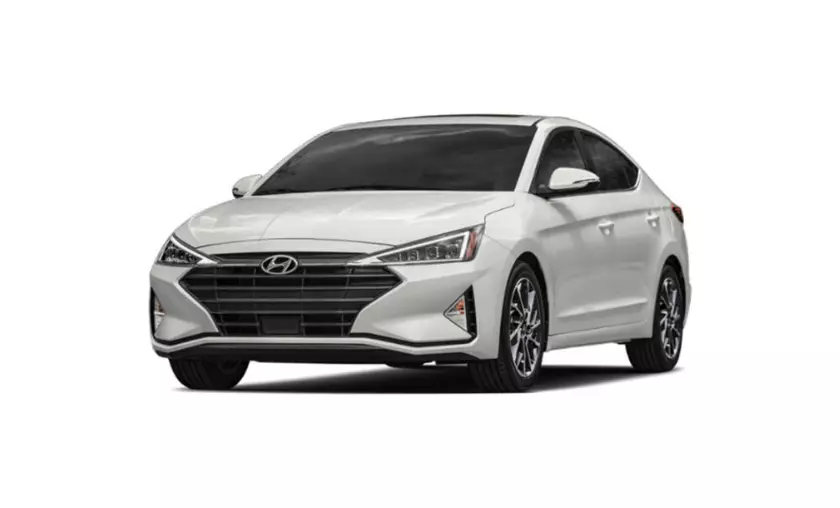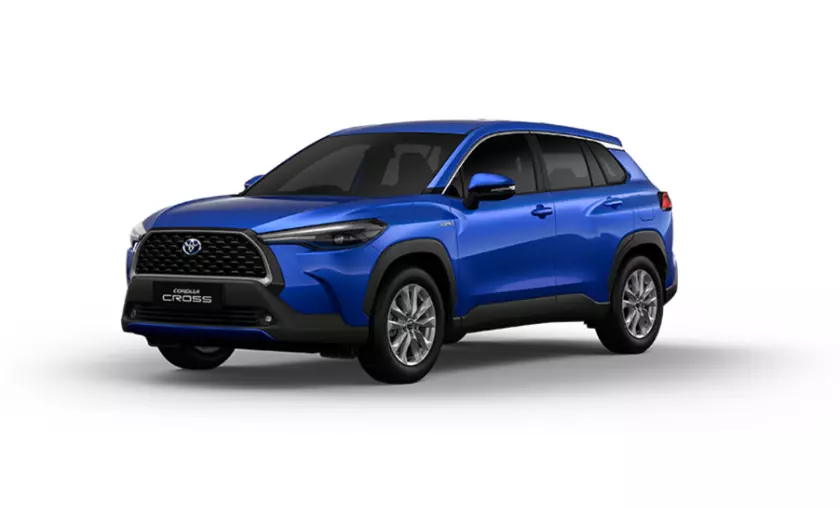Hybrid Cars for Fuel Efficiency have revolutionized the automotive industry by combining traditional internal combustion engines with electric power. These innovative vehicles are designed to significantly reduce fuel consumption and greenhouse gas emissions, making them environmentally friendly and cost-effective options for conscientious drivers.
In this guide, we will explore the principles behind hybrid technology, the advantages of owning a hybrid car, and some of the most popular models on the market today. Whether you’re interested in reducing your carbon footprint or saving money at the pump, hybrid cars offer a compelling solution to meet your transportation needs.
10 Best Hybrid Cars for Fuel Efficiency & Performance
Hyundai Elantra
Hybrid Cars for Fuel Efficiency
The Hyundai Elantra retains its strong position within the realm of compact sedans by offering a spacious interior, an extensive array of standard safety features, and an exceptionally generous warranty. Furthermore, it boasts a diverse lineup, ranging from highly efficient hybrid models to a high-performance variant. The Hyundai Elantra is a five-passenger vehicle available in seven distinct trim levels.
The most sought-after option is the Hybrid Limited DCT, which commences at a base price of $30,265 and is equipped with a 1.6L I4 hybrid engine and front-wheel drive. This particular Elantra is anticipated to achieve an impressive 49 miles per gallon (MPG) in city driving and an outstanding 52 MPG on the highway.
Combined Fuel Economy: Up to 54 mpg
Kia Niro
Hybrid Cars for Fuel Efficiency
The reimagined Kia Niro presents remarkable fuel efficiency, a practical electric driving range, a more spacious interior compared to its previous iteration, and an array of impressive features for its price point. However, it’s worth noting that the highest-tier configurations can become quite expensive.
The Kia Niro is a five-passenger vehicle available in seven different trim levels. The most favored option is the Hybrid EX, which starts at $30,515 and is equipped with a 1.6L I4 hybrid engine and front-wheel drive. This specific Niro is anticipated to achieve an impressive 53 miles per gallon (MPG) in city driving and an outstanding 54 MPG on the highway.
Combined Fuel Economy: Up to 53 mpg
Hyundai Sonata
Hybrid Cars for Fuel Efficiency
The Hyundai Sonata combines sleek aesthetics and an appealing interior across diverse trim levels. With multiple engine choices, including a modest base engine, a high-performance option, or an efficient hybrid, finding a Sonata that aligns with your comfort and driving preferences is a breeze.
The Hyundai Sonata is a five-passenger vehicle available in eight distinct trim levels. The most favored choice is the Hybrid Limited, commencing at $37,715 and featuring a 2.0L I4 hybrid engine paired with front-wheel drive. This particular Sonata is anticipated to achieve an impressive 45 miles per gallon (MPG) in city driving and an outstanding 51 MPG on the highway.
Combined Fuel Economy: Up to 52 mpg
Kia Sportage
Hybrid Cars for Fuel Efficiency
The revamped Kia Sportage represents a comfortable crossover offering an extensive array of trim options, including recently introduced hybrid models. Its increased size results in a more spacious interior, which may pose challenges when navigating congested urban areas. The Kia Sportage is a five-passenger vehicle with a choice of twelve trim levels.
The most sought-after style is the Hybrid LX AWD, commencing at $30,615 and equipped with a 1.6L I4 Turbo hybrid engine and all-wheel drive. This particular Sportage is expected to achieve an impressive 38 miles per gallon (MPG) both in city driving and on the highway.
Combined Fuel Economy: Up to 43 mpg
Lexus UX
Hybrid Cars for Fuel Efficiency
The Lexus UX 250h, a subcompact crossover SUV accommodating up to five passengers, brings the brand’s refined luxury to a configuration perfectly suited for city commuters. The Lexus UX is available in four distinct trim levels, with the most favored choice being the UX 250h Premium AWD, beginning at a base price of $40,550.
This variant is equipped with a 2.0L I4 hybrid engine and all-wheel drive, boasting impressive fuel efficiency estimates of 41 miles per gallon (MPG) in city driving and 38 MPG on the highway.
Combined Fuel Economy: Up to 42 mpg
Toyota Corolla Cross
Hybrid Cars for Fuel Efficiency
The addition of a new hybrid option enhances the appeal of this year’s Toyota Corolla Cross for buyers seeking a practical and fuel-efficient compact SUV. Its primary drawbacks include limited rear seat space and modest acceleration, although these are not uncommon traits in the segment.
The Toyota Corolla Cross is a five-passenger vehicle offered in six different trim levels. The Hybrid XSE AWD is the most popular style, commencing at $32,415. It features a 2.0L I4 hybrid engine and all-wheel drive, delivering impressive fuel efficiency estimates of 45 miles per gallon (MPG) in city driving and 38 MPG on the highway.
Combined Fuel Economy: Up to 41 mpg
Toyota Crown
Hybrid Cars for Fuel Efficiency
Toyota skillfully merges the sedan and crossover categories with its Crown model. This vehicle will resonate with individuals who value creature comforts, enjoy the convenience and enhanced visibility of higher seating, and prefer a sedan’s elegant aesthetics and ambiance over a boxy crossover.
The Toyota Crown is a five-passenger car available in three distinctive trim levels. The most favored variant is the Limited, commencing at a base price of $46,645. It features a 2.5L I4 hybrid engine and all-wheel drive, boasting impressive fuel efficiency estimates of 42 miles per gallon (MPG) in city driving and 41 MPG on the highway.
Combined Fuel Economy: Up to 41 mpg
Kia Sorento
Hybrid Cars for Fuel Efficiency
The Kia Sorento stands out as a unique small SUV that offers a rare third row of seats, making it one of the most versatile choices in its class. Coupled with its outstanding value, fuel-efficient hybrid models, and striking design, it presents a compelling option that’s hard to surpass. The Kia Sorento accommodates six passengers and is available in eleven distinct trim levels.
The most sought-after style is the Hybrid EX AWD, commencing at $40,315 and featuring a 1.6L I4 Turbo hybrid engine paired with all-wheel drive. This particular Sorento is projected to achieve an impressive 36 miles per gallon (MPG) in city driving and 33 MPG on the highway.
Combined Fuel Economy: Up to 37 mpg
Lexus NX
Hybrid Cars for Fuel Efficiency
Despite going two consecutive years without updates, the compact Lexus NX maintains its standing as one of the premier luxury SUVs in its category. Its allure stems from its plush ride, comfortable interior, and impeccable craftsmanship. While it may not prioritize sportiness, and its technology interface could be more user-friendly, the Lexus NX excels in fulfilling the key desires of luxury SUV buyers.
The Lexus NX accommodates five passengers and offers a choice of eleven trim levels. The most favored style is the NX 350h Premium AWD, commencing at $47,255 and featuring a 2.5L I4 hybrid engine paired with all-wheel drive. This specific NX is anticipated to achieve an impressive 41 miles per gallon (MPG) in city driving and 37 MPG on the highway.
Combined Fuel Economy: Up to 39 mpg
Lexus ES
Hybrid Cars for Fuel Efficiency
The Lexus ES epitomizes the traditional luxury sedan, placing a premium on a smooth, serene ride and a tranquil cabin environment rather than pursuing high-performance thrills. It particularly excels in delivering outstanding fuel efficiency in its hybrid configuration, positioning it as a top-tier choice within its class, especially for those whose priorities don’t revolve around sporty driving.
The Lexus ES offers seating for five passengers and an array of twelve trim levels. The most favored style is the ES 300h F SPORT Design FWD, which begins at $48,975 and is equipped with a 2.5L I4 hybrid engine paired with front-wheel drive. This specific ES is projected to achieve an impressive 43 miles per gallon (MPG) in city driving and 44 MPG on the highway.
Combined Fuel Economy: Up to 44 mpg
Conclusion
Hybrid cars have emerged as a compelling solution for those seeking improved fuel efficiency and reduced environmental impact. The technology behind hybrid vehicles seamlessly blends traditional internal combustion engines with electric power, allowing for impressive fuel economy gains without sacrificing performance.
As the automotive industry continues to innovate and invest in hybrid technology, we can anticipate even more fuel-efficient and eco-friendly options in the future. Ultimately, the decision to embrace hybrid technology represents a significant step toward a sustainable and greener future on the road, benefiting both individuals and the planet.
FAQ’s
Are Hybrid Cars Suitable For Long-distance Travel?
Yes, hybrid cars are suitable for long-distance travel. While they excel in city driving and short trips, they can perform well on highways and long journeys. The internal combustion engine ensures that you have the power needed for highway speeds, and the hybrid system’s regenerative braking can be advantageous on downhill stretches, helping to recharge the battery.
Are There Government Incentives or Rebates for Purchasing Hybrid Cars?
Many governments offer incentives, tax credits, or rebates to encourage the adoption of hybrid and electric vehicles. These incentives can vary by region and may include income tax credits, rebates on purchase, or reduced registration fees. It’s advisable to check with local authorities or visit official government websites to determine available incentives.
Do Hybrid Cars Require Any Special Maintenance or Care?
Hybrid cars generally do not require significantly different maintenance compared to traditional vehicles. Regular oil changes, tire rotations, and brake inspections are still necessary. However, the hybrid battery may have a warranty, and it’s important to follow manufacturer guidelines for maintenance and battery replacement when necessary.
Are All Hybrid Cars the Same When It Comes to Fuel Efficiency?
No, fuel efficiency can vary among hybrid models depending on factors like the size of the battery, the efficiency of the internal combustion engine, and the overall design of the vehicle. It’s essential to research and compare specific hybrid models to determine their fuel efficiency.
What Are the Benefits of Driving a Hybrid Car for Fuel Efficiency?
The benefits of driving a hybrid car include reduced fuel consumption, lower emissions, potential savings on fuel costs, and a reduced carbon footprint. They are especially advantageous in city driving and stop-and-go traffic, where the electric motor can be used most effectively.
To Read More Similar Articles, Click Here.
Thanks for Visiting Our Website. If You Appreciate Our Work, Kindly Show Us Some Support in Our Comments Section 🙂





